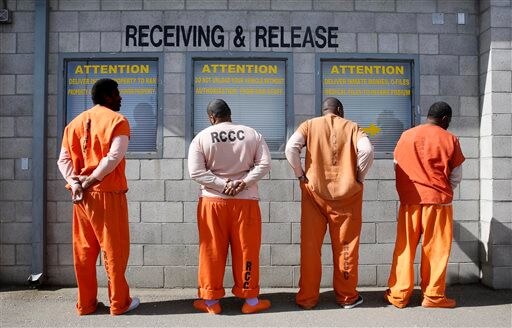Non-Americans in the U.S. federal court system are more likely to be sentenced to prison and for longer terms compared to U.S. citizens, according to new research from Purdue University.
“Much of the discussion in this area has centered around deportation, but increasing numbers of immigrants are being brought before criminal courts, and little is known about how they are treated once they are in the criminal justice system,” said Michael T. Light, an assistant professor of sociology. “This is a major gap given that the number of noncitizens sentenced in U.S. federal courts increased nearly five-fold over the past two decades.”
The findings are published in American Sociological Review, and the research was funded by the National Science Foundation. Light collaborated on this study with Michael Massoglia from the University of Wisconsin-Madison and Ryan D. King from Ohio State University.
Data from U. S. federal district court records from 2008 was analyzed for this study. During that time, 96 percent of convicted noncitizens received a prison sentence, compared to 85 percent of U.S. citizens.
“Factors normally associated with sentencing severity, such as the seriousness of the offense or criminal history, cannot fully explain this gap,” Light said. “Even after accounting for these factors, we find this citizenship sentencing penalty remains, especially for the undocumented.”
Light said this topic is a growing concern as the number of noncitizens in the United States continues to grow and is estimated at more than 22 million.
“These results suggest that despite equal rights, noncitizens do not receive equal treatment in the U.S. federal courts,” said Light, who studies the sociology of punishment.
“Because a lot of research focuses mainly on race or ethnicity in the criminal justice system, the importance of citizenship has been somewhat overlooked,” Light said. “This is not a reflection of well-known patterns of racial or ethnic inequality. Noncitizens among all racial or ethnic groups are at risk of harsher sentencing. Indeed, we find that the sentencing disadvantage is greater for white noncitizens than for black citizens.”
Light also found that the frequency and severity of such sentencing for non-U.S. citizens also increased between 1992 and 2008. He is currently analyzing interviews with judges to possibly identify the causes and influences for this change in more recent years.


